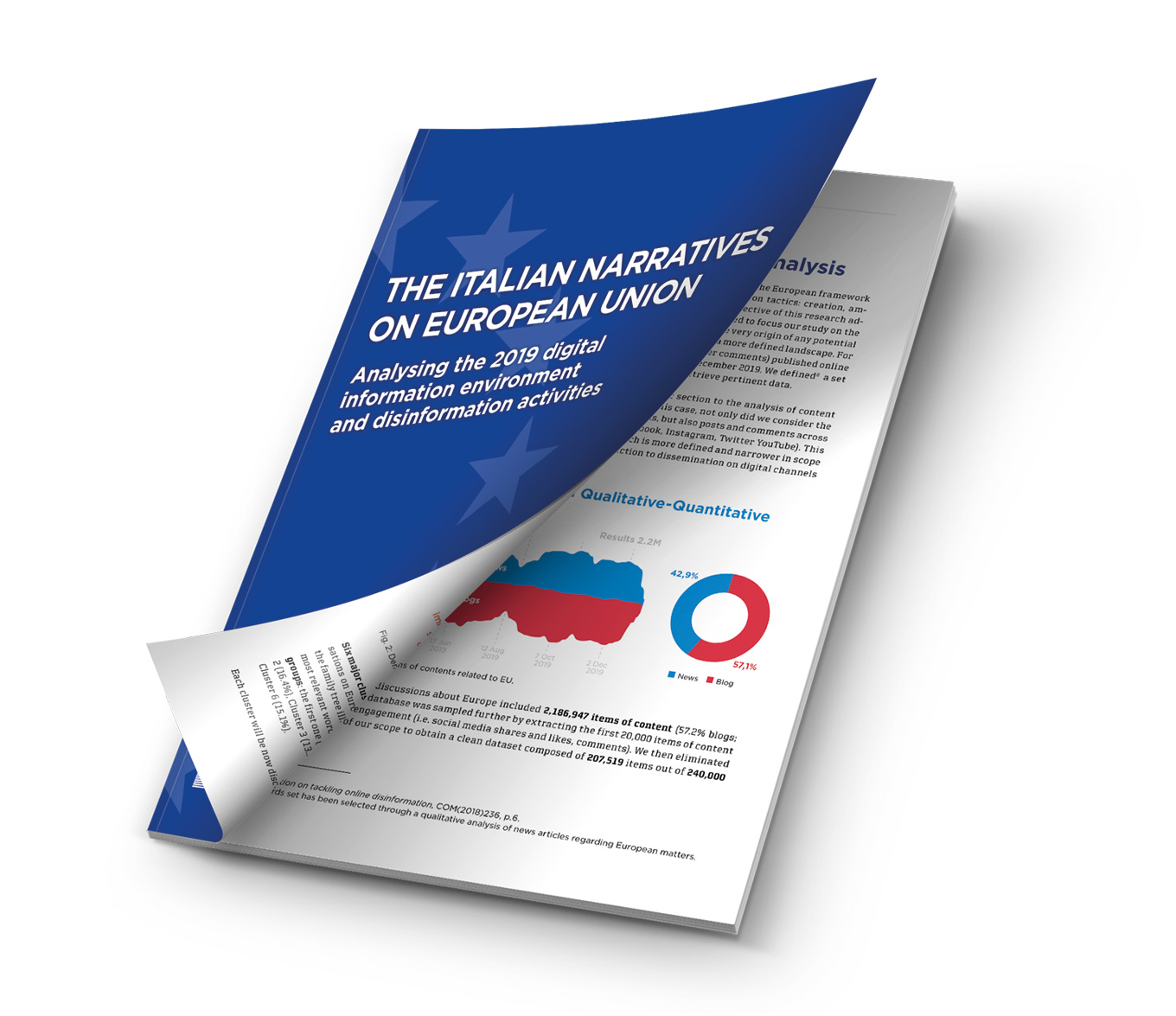European Commission
At the beginning of 2020 the Italian Delegation of the European Commission entrusted us with an analysis of the Italian online information ecosystem in 2019 with the aim of identifying abnormal communication dynamics and disinformation activities related to the European Union and aimed at pollute public debate.
Context
The European Council has recognised online disinformation as a serious threat to society since 2015. In spring 2018, the Eurobarometer published an important research on fake news and online disinformation. In this context, our analysis focused on the Italian digital information environment and the discussions related to the EU, with the aim of detecting the presence of anomalous communication activities and malicious information dynamics. The Italian digital ecosystem related to the 2019 discussions on the European Union has been explored through both quantitative and qualitative analyses.
The methodology of analysis
What were the basic narratives about the EU in the Italian digital information environment during 2019? Which were the most prone to abnormal activity? To answer the research questions, we focused the study on the production of content, so as to deepen the origin of any potential disinformation activities and, at the same time, focus the analysis on a more defined subject of research. Starting from the articles published online on news platforms, blogs, aggregators or websites between January and December 2019, we have defined a set of relevant keywords and used an advanced analysis tool to identify the relevant data and assess the objectives and impact of systematic disinformation actions.
Activities
- Social intelligence analysis
- Semantic analysis
- Network analysis
European Union, a multifaceted concept
The analysis of the contents published in the Italian network has highlighted how the European Union is perceived as a multifaceted concept, the subject of discussions and disinformation. It is a theme capable of arousing significant attention and a strong emotional involvement in users who – depending on the actors involved – can be manipulated for multiple purposes. The idea of Europe has been used to poison and inflame public discourse at local level, or to promote particular interests, but it has also served to spread a wider sense of community and increase the positive perception of being European citizens.




